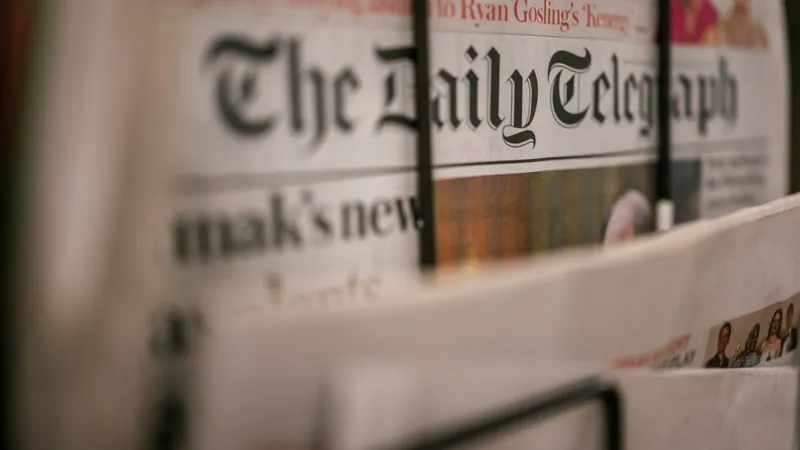UK Authorities Announce Ban on Foreign State Ownership of Newspapers
The UK government has declared that foreign governments will be prohibited from owning newspapers and news magazines in the country, citing concerns about a potential takeover of the Daily Telegraph and Spectator by a group funded by the United Arab Emirates. This move aims to bolster protections for a free press and prevent undue influence from foreign states.
The announcement comes as an amendment to the Digital Markets, Competition and Consumers Bill is set to be introduced, signaling a response to the growing cross-party pressure on the government to address the issue promptly. Lord Parkinson of Whitley Bay, in making the ban official, specified that the legislation would prohibit mergers involving ownership, influence, or control by foreign states, focusing on newspapers and periodical news magazines.
However, it’s noteworthy that the buyout ban will not extend to broadcasters, as confirmed by Lord Parkinson. The proposed amendment is scheduled to be part of the bill’s third reading next week, with the government seeking to prevent potential takeovers that might compromise the independence of the media.
A particular case in point is the bid by RedBird IMI, an investment fund, to take control of the Daily and Sunday Telegraph titles and the Spectator magazine. The fund is predominantly owned by Sheikh Mansour, the deputy prime minister and vice president of the UAE. The government’s intervention raises questions about the potential impact on this bid, which has faced opposition from various quarters, including political figures and media personalities.
The government’s decision aligns with the broader concern about foreign powers influencing UK news media organizations, as articulated by Baroness Stowell, chair of the Communications and Digital Committee. She emphasized the importance of preventing foreign governments from owning a critical and sensitive part of the nation, as it could further erode public trust in news, Parliament, and the political class.
To enforce this prohibition, the government proposes referring proposed media mergers to the Competition and Markets Authority if there are reasonable grounds to believe that a deal would result in foreign state ownership, influence, or control. The authority would then conduct an investigation, and if it determines that a merger would lead to such foreign state involvement, the secretary of state would be required to make an order blocking or unwinding the merger.
In summary, the UK government’s move to ban foreign governments from owning newspapers and news magazines is seen as a crucial step in safeguarding the independence and integrity of the country’s media landscape, particularly in the face of potential takeovers that could compromise journalistic freedom.


















































Comment Template